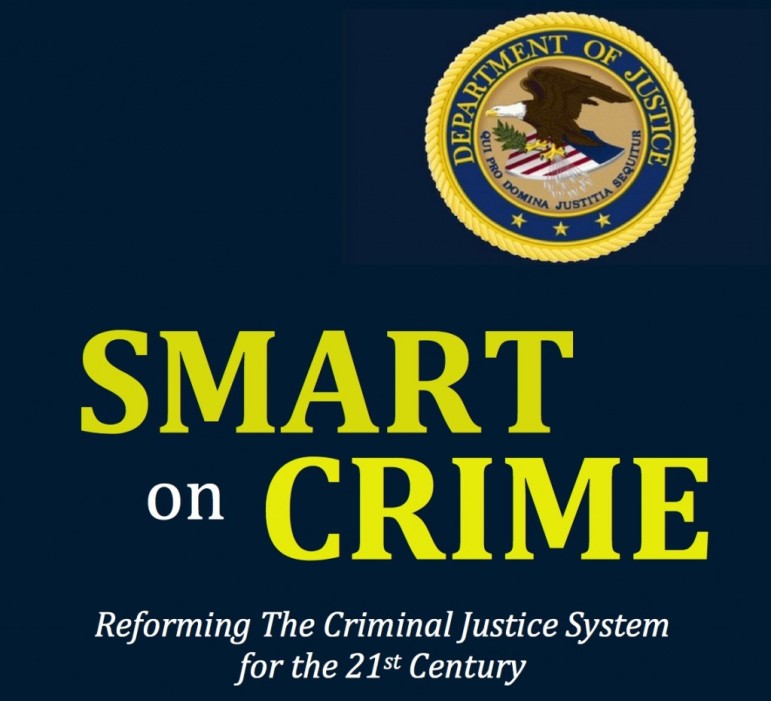From The Chicago Bureau
In a major national policy shift, the Obama administration has moved to lessen overcrowding in federal prisons by ordering prosecutors to sidestep federal laws imposing mandatory minimum sentences for drug-related offenses by omitting the quantities of illegal substances in indictments for low-level drug cases.
Attorney General Eric H. Holder Jr. announced the new policy as part of a “Smart on Crime” initiative at the American Bar Association’s annual meeting in San Francisco on Monday.
“As the so-called ‘war on drugs’ enters its fifth decade, we need to ask whether it, and the approaches that comprise it, have been truly effective,” Holder stated. “With an outsized, unnecessarily large prison population, we need to ensure that incarceration is used to punish, deter, and rehabilitate – not merely to warehouse and forget.”
 According to varying estimates, the prison population has swelled by 600 to 700 percent over the past 30-some years. Get-tough-on-crime laws originating in the 1980s reduced crack and gang wars that had spiked crime and violence rates, but organizations such as the juvenile justice nonprofit W. Haywood Burns Institute have argued the harsh laws of the period targeted mostly people of color and youth used as runners for drug dealers.
According to varying estimates, the prison population has swelled by 600 to 700 percent over the past 30-some years. Get-tough-on-crime laws originating in the 1980s reduced crack and gang wars that had spiked crime and violence rates, but organizations such as the juvenile justice nonprofit W. Haywood Burns Institute have argued the harsh laws of the period targeted mostly people of color and youth used as runners for drug dealers.
In fact, Holder’s speech specifically mentioned youth violence, stating the need “to better understand, address, and prevent young people’s exposure to violence,” as well as “those zero-tolerance school discipline policies that do not promote safety, and that transform too many educational institutions from doorways of opportunity into gateways to the criminal justice system.”
He emphasized: “A minor school disciplinary offense should put a student in the principal’s office and not a police precinct.”
States have been retreating over the past few years from tougher sanctions on minor infractions – a New York federal judge just ruled unconstitutional the city’s Stop-and-Frisk policy – and even the United States Supreme Court has delivered rulings aimed at a more restorative and rehabilitative model of justice.
Federal and state officials, including Illinois governor Pat Quinn and Robert Listenbee, director of the Office on Juvenile Justice and Delinquency Prevention, have also recently examined ways to combat the high recidivism rates that are often tied to minor offenses, sending former inmates back to prison.
“Federal prosecutors cannot – and should not – bring every case or charge every defendant who stands accused of violating federal law,” Holder said. “Some issues are best handled at the state or local level.”
The Obama administration also plans to tackle issues such as sexual assault, domestic violence and dating violence.
A document detailing the Smart on Crime initiative was released online on Monday, listing the initiative’s five principles as:
1. Prioritizing prosecutions to focus on the most serious cases
2. Reforming sentencing to eliminate unfair disparities and reduce overburdened prisons
3. Pursuing alternatives to incarceration for low-level, non-violent crimes
4. Improving reentry to curb repeat offenses and re-victimization
5. ‘Surging’ resources to violence prevention and protecting the most vulnerable populations

